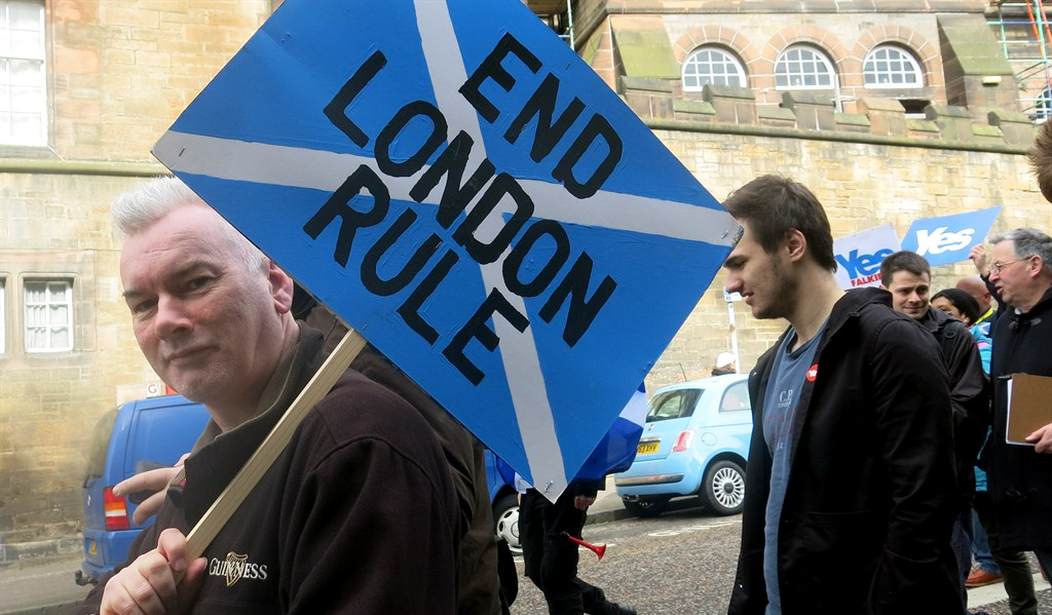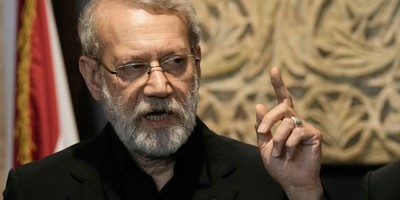"The best laid schemes of mice and men often go awry." -- Scottish poet Robert Burns, "To a Mouse" (1786)
CAIRNRYAN, Scotland -- For Americans whose knowledge of this beautiful land is limited to kilts, whiskey, bagpipes and the film "Braveheart," the forthcoming referendum on whether Scotland should remain part of the United Kingdom or become an independent nation will come as a curiosity at best.
The primary objection of those favoring separation is the lack of self-determination granted to Scots by the British government. Though Westminster in recent months has devolved more powers to Edinburgh, those favoring separation say it is not enough.
In the final debate Monday night before the September 18vote (a turnout of 80 percent is predicted), the chairman of the "Better Together" campaign, Alistair Darling, engaged in the rhetorical equivalent of a heavyweight prizefight with Alex Salmond, first minister of Scotland.
Salmond was declared the winner of the debate, decisively defeating Darling on performance, despite numerous interruptions by both men. Darling mostly had the better of it on substance when he noted the uncertainty that would follow separation, especially over the currency that will be used, the debt Scotland could still owe Britain, lost revenue from North Sea oil and gas and "thousands" of jobs that might be lost if U.S. Trident submarines were forced to leave Scottish waters, since presently, the U.S. is allied firmly with Great Britain, who, after separation, would no longer hold sway over Scottish ports.
The referendum generally pits a younger liberal population in favor of separation against older, more conservative Scots. Listening to questions from the Glasgow audience in the nationally televised debate, I was struck by how much the ideological battles here resemble U.S. politics, especially when it comes to defense. The naive argument by one young man, who appeared no older than 30, that ridding Scotland of nuclear weapons will somehow make the country safer might make some liberals feel better in the short term, but it denies the reality of peace through strength and the superior argument that having nuclear weapons serves as a deterrent.
Recommended
Salmond mentioned the aging and increasingly dysfunctional National Health Service and the thousands of Scots who have come to rely on it. He wondered whether they will become victims of budget cuts, privatization and austerity measures should Scotland remain part of the UK. He's right, of course. NHS is running in the red and cannot sustain itself, but parting ways with Britain won't fix that for Scotland, reports the Daily Mirror, and Salmond has no viable alternative to the NHS. Darling might have pointed this out to him, but he chose not to.
Another similarity with U.S. politics was the failure of both men to challenge the populace to rely less on government and more on themselves. "We can't go on like this" might not sit well with voters who have come to rely too much on government and as a result contributed to the national debt of both countries, but it is reality.
Polls taken before the final debate show the pro-separation side still trailing by 14 percent those who wish Scotland to remain part of Britain, but people are now paying attention. The loudest applause of the night came when Salmond closed with this line: "This is our time, it's our moment. Let us do it now."
Scottish independence would further weaken what remains of Britain's once great "empire." It could also seriously weaken Scotland, which could learn that unlike the young adult who leaves home unprepared and soon has to return, there may be no going back if Scotland leaves the "home" it has lived in for more than 300 years.

























Join the conversation as a VIP Member